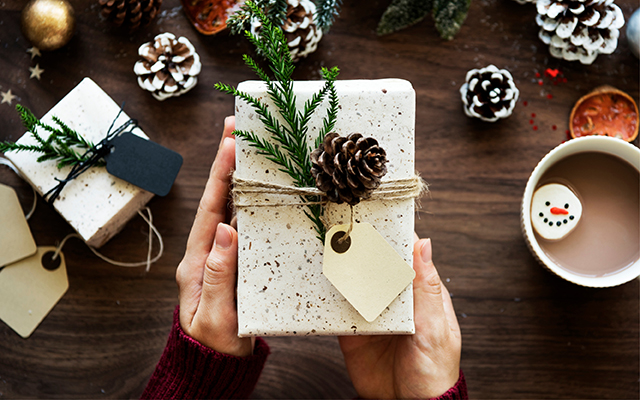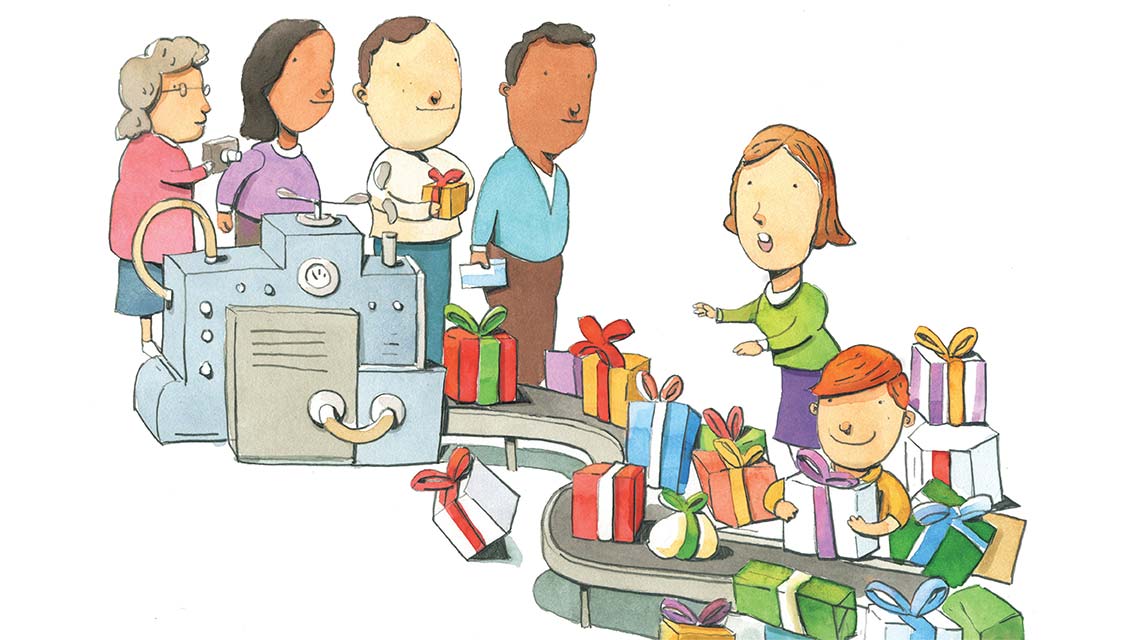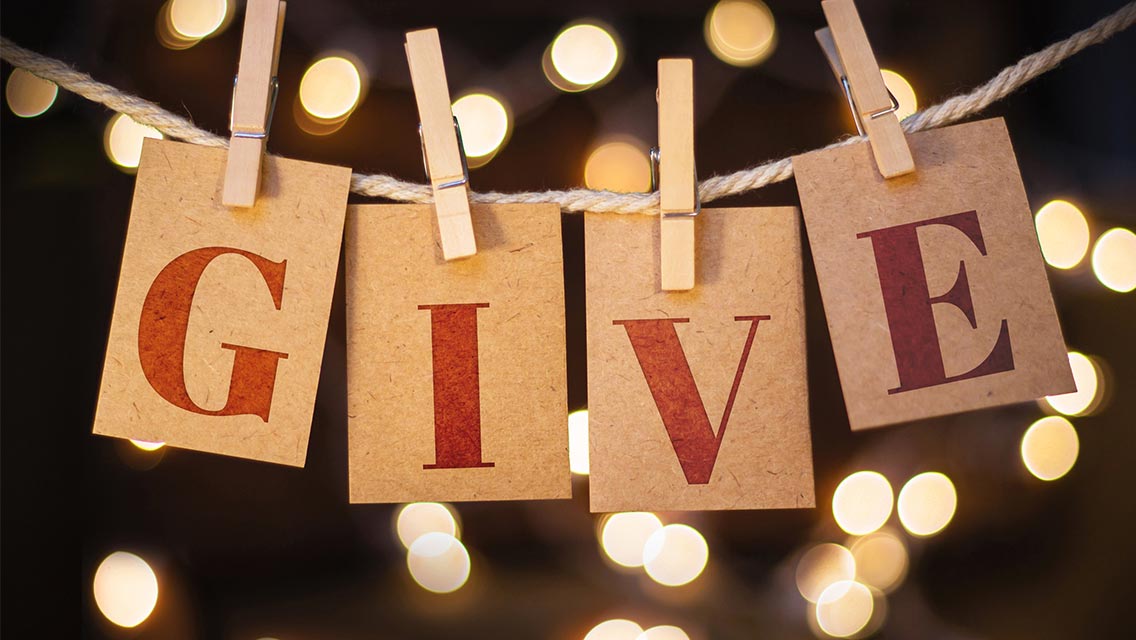Fully 90 percent of Americans feel stress and anxiety about the holiday season, according to a 2009 survey by Harris Interactive, and the majority of that stress is related to buying gifts.
“We’ve gotten into a toxic situation with holiday gift giving,” says Wanda Urbanska, a North Carolina–based simplicity and sustainability advocate and the author of The Heart of Simple Living: 7 Paths to a Better Life. “The worst-case scenario is dashing into the mall at the last minute and grabbing stuff, throwing it on the credit card, and not thinking about the financial consequences — or even what the person wants or needs. It’s a financial burden, it’s a time burden, and it’s an environmental burden.”
Believe it or not, the holiday season doesn’t have to exact this kind of emotional and fiscal expense. A growing number of people are sweeping away the clutter of scented candles and cheap plastic ornaments in favor of more meaningful gift-giving traditions, like collective charity donations and handmade treats. Creating simpler, more ease-filled holiday rituals starts with practical strategies to avoid overspending and shopper exhaustion, but the rewards go beyond saving money: By returning to the altruistic impulse that is the source of gift-giving, you can trade your gift-related anxiety for the true pleasure of generosity.
Here are eight strategies to help you give with a more peaceful heart:
1. Craft Your Gifts
At first glance, this strategy may seem even more stressful than shopping for gifts, but the key is small-scale production. In an afternoon, you and your kids could make potato stamps and “mass produce” a hundred colorful, homemade gift-card sets with scrap cardstock from a local printer. Any similar homemade craft, including cooking (see below), can be accomplished in a day or two.
If you have children, getting them involved is a great way to come together as a family in the spirit of generosity, explains Jo Robinson, author of the acclaimed Unplug the Christmas Machine. “When our son was young, he made us placemats for Christmas dinner,” Robinson says. “Each year, they would be more artistic, but the early scribbles were just as appreciated.”
(Try one of these beautiful and useful DIY gifts.)
2. Cook Your Gifts
Sara Snow, a green-living expert and author of Sara Snow’s Fresh Living, grew up watching her grandmother bake holiday treats for her neighbors, friends and family. Last year, Snow took over that tradition, using her grandmother’s recipes. “It was exhausting, but so rewarding,” she says. “It was as much a gift to myself as to anyone else.”
It’s also not necessary to wear yourself out baking a dozen varieties of cookies. Consider making one item that you can give to everyone, like spiced nuts, herbed olive oil or canned produce from your garden.
3. Plan a Budget
It’s likely that you’ll always end up purchasing at least some gifts, especially if you have young children. The one sure way to curb your spending is to plan ahead, Urbanska suggests. “Set a budget and stick with it,” she says. If a financial spreadsheet isn’t your style, you can achieve the same goal by shopping for gifts year-round. Urbanska keeps a gift drawer in her house that she stocks over the course of the year. “It has a number of virtues,” she explains. “You’re spreading the financial burden over 12 months, and you avoid the pressure and stress of having to shop all at once. Even better, you can direct your gift money to smaller artisans, which might not be practical in the last-minute shopping frenzy.”
4. Shop Your Home
“Re-gifting” things from last year’s pile can be great — an unused item taking up space in your house finds its purpose in more appropriate hands. Look for items in your home that have a personal meaning to you and the recipient. Urbanska owns a teapot that was given to her mother by a dear family friend. “My mother wrote a note when she gave it to me explaining where it had come from. I keep that paper in the teapot, and when I use it I have the memory of that family friend,” she says. Family heirlooms, favorite Christmas ornaments, treasured dishes — all of these provide a more meaningful gift than something picked up on the fly at the mall.
5. Give of Yourself
Offer an experience instead of stuff. This might be as simple as giving a massage coupon book to your partner or a pair of ballgame tickets to your child. You can also use your passions as a source of inspiration. If you love photography or videography, consider framing some of your pictures or making a special holiday DVD for your gift list. “You’re essentially sharing your expertise rather than your money,” says Susannah Seton, author of Simple Pleasures for the Holidays.
6. Buy Presents in Bulk
Depending on your gift list, it might be enough to purchase a dozen beeswax pillar candles or a case of wine to distribute. If you balk at the impersonality of bulk gifts, just take some extra time to choose a gift that truly reflects your values. For example, if you have a nonperishable food that’s local to your region, like maple syrup, you may be able to purchase it directly from a farmer or producer; include information about the source in your gift package. (See “Gifts You Can Feel Good About,” below, for more bulk gift ideas.)
7. Give to Charity
The holidays can serve as a wonderful catalyst for sharing your resources and a great opportunity to teach your kids about generosity’s rewards. Carol Weisman, author of Raising Charitable Children, has been holding a philanthropy meeting with her family every Christmas morning for 27 years. They call it the “Joy and Sadness Meeting,” and they spend time sharing what has affected them most in the past 12 months.
“We’ve discussed everything from pet ownership to divorce, suicide of classmates, the plight of the uninsured and the challenges of Gulf War veterans getting access to mental-health care, to name just a few topics,” Weisman says.
Based on what’s moved them the most, they choose organizations for their donations and volunteer hours that support the kind of change they want to see in the world in the coming year. And their conversation helps the family to grow closer as they learn more about each other’s deep experiences and values.
A sharing ritual can also teach kids valuable practical lessons. “Years ago, we delivered sandwiches to a homeless shelter,” Weisman says. “My young sons were moved by the sad condition of many of the clients’ teeth. After that, nagging the kids about teeth brushing and dentist visits became a non-issue.”
8. Shop Socially
If it turns out that you still have a gift list that requires a shopping day, make it a social event. Grab your partner or a few friends and plan your day in a way that reflects your values — and your sense of fun. Visit smaller, local retailers (so that your gift budget is also a gift to your local economy) and build in time for a meal, a glass of wine or even a massage.
With a little planning, the ritual of holiday offerings can become a satisfying experience for givers and receivers alike.
Gifts You Can Feel Good About
Buying bulk can save you money and time — but how do you make a bulk gift feel personal? Shop according to your values and consider spending an afternoon making personalized packaging for your bulk items. Here are a few ideas to get you inspired:
Herbal Teas
Buy quantities of loose-leaf peppermint, chamomile and other herbs that make great teas. Package custom blends in hand-labeled decorative glass jars. Include an infuser, if you like.
Beeswax Candles
Unlike petroleum-based chemical candles, beeswax is all natural and burns with a gentle, natural fragrance. It can be fun for you and your kids to dip or mold your own tapers and votives. (Or, make your own with this simple how-to.)
Herbed Olive Oil
Portion high-quality bulk olive oil in small bottles and infuse with local, organic herbs. The flavor will be spectacular!
Charitable Donations
Giving a charitable donation in someone’s name can have far more meaning than a material token. Consider making a bulk donation and sending cards (like these from Seva — www.seva.org) to each recipient to let them know about your gift.




This Post Has 0 Comments